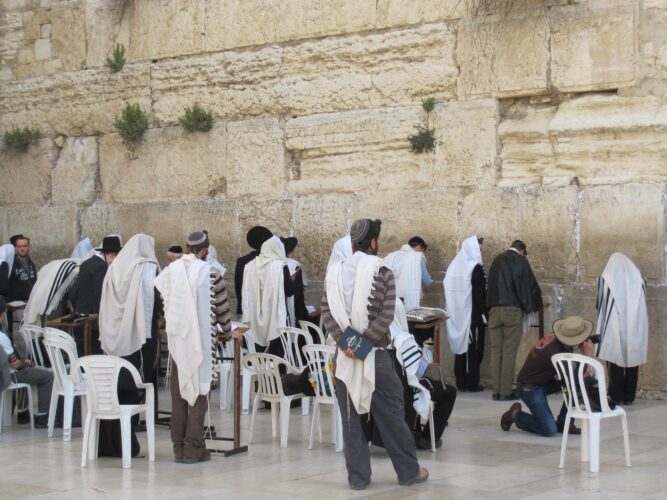We have now come to this last short essay. We have covered the basics of Classical Dispensationalism and our difficulties with this theology. Now I want to address Israel. I believe that Classical Dispensational theology is a foreign imposition upon Israel. It is true that we cannot do our Messianic Jewish/Israeli theology without reference to the scholars and theologies that have dominated the Christian world. In addition, we should have reference to the Messianic Jewish scholars of the Diaspora. We do affirm the emphasis of Dispensational Theology that Israel, the Jewish people, continued after the first century to be God’s elect people and are still elect. However, the dispensational ways of definition, that there are two peoples of God, two plans, an earthly plan and salvation for Israel, and a heavenly salvation and plan for the Church are very problematic. We especially see this breakdown in Paul’s calling Messianic Jews the saved remnant of Israel and also the first fruits that sanctify the rest of the nation of Israel (Rom. 11:5, 16). At the same time, they are the Jewish part of the one new man of Ephesians 2. Dispensational ways of defining grace over against law, the tribulation period with the absent church, and more are very problematic. The sometimes narrow mentality that is so critical of others is not helpful.
Dispensational theology becomes part of the mentality of people. People may not have ever been given a systematic presentation, but the way they talk about law (often quite negatively) and grace (often as hyper-grace salvation that requires no repentance or change of life) is very sad. “You are not going back under the Law, are you?” “Are you Judaizing?” In addition, there is no passion for Last Day’s revival and unity. These hopes should motivate and excite. Even if we do not see them fulfilled in our lifetime, these hopes can lead to greater passion in prayer and cooperation in unity. There is a profound optimism that the best is yet to be, even the very best for the Body of the Messiah before the return of the Lord. Yes, darkness will cover the earth, but there will also be a great harvest through world revival.
Non-Dispensationalists use more adequate language when speaking about the Gospel. They speak of extending the Kingdom through the Gospel of the Kingdom, whereas dispensationalists only speak of people being saved (not wrong but needs additional language too). The more adequate language of George Ladd (The Gospel of the Kingdom) and Dallas Willard (Divine Conspiracy) is very helpful. The wrong language produces some blindness. We “see” through the language we use.
Will we in Israel become a movement of supernatural power, revival, and signs and wonders confirming evangelism? Will we attain John 17:21 unity in Israel and with our church partners? We believe that all this will happen, but this will require going beyond dispensationalism.
